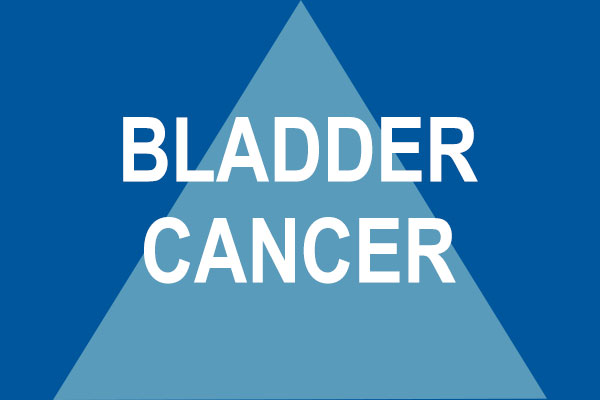Bladder Cancer Checklist for the Newly Diagnosed
Practical Advice from People Who’ve Been There
You’ve just learned that you or a loved one has bladder cancer. At first, it’s natural for you to be upset, depressed, panicked, and overwhelmed. Know you are not alone and that there are people out there to help you.
Become the best advocate for your own health. We’ve put together this list, compiled by individuals who are living with bladder cancer. We hope you find it useful.
When you are first diagnosed:
- Don’t panic. When we first hear “the C word,” we all think the worst is going to happen. Many times, a diagnosis of cancer does not bring the worst-case scenario.
- Have a good cry, kick something, yell, and then get on with fighting your illness. If you get depressed, see a therapist or talk to your healthcare provider. There’s a lot they can do to help you.
- Be patient with the ones who love you. Remember, this is hard on them also. Cancer affects the whole family.
- Accept help from your family and friends who offer. Ask them for support, help, and understanding.
Remember, bladder cancer is not just bladder cancer; it is a disease that can affect the entire urinary system, including your kidneys.
To begin the fight:
- Bladder cancer is a treatable disease. Learn as much about your diagnosis as you can. Look on the internet, search medical libraries, request the Bladder Cancer Advocacy Network’s patient handbook “Bladder Cancer Basics” at BCAN.org/handbook. Read the literature yourself. If you find that researching it upsets you, let someone close to you do it and bring you the relevant information.
- If you want the best treatment, find a highly-regarded urologist who specializes in bladder cancer. If you can, seek help in a major cancer center where they treat many cases of this disease. Choose a urologist you trust and with whom you feel comfortable. Find a doctor who will talk to you.
- Get second, third, and fourth opinions if you are so inclined. Doctors can and do vary significantly on the treatments they recommend.
- Remember, bladder cancer is not just bladder cancer; it is a disease that can affect the entire urinary system, including your kidneys. That’s why it’s important to move forward with a correct diagnosis and course of treatment as soon as possible to prevent the spread to other parts of your urinary tract.
- Understand your options. Talk them over with your significant other, family members, or close friends and make decisions that are agreeable to both of you.
How to Get a Second Opinion
Before starting your treatment plan, or having surgery, you may want to get a second opinion about the diagnosis, stage, and treatment. Some insurance companies require a second opinion; others may cover it if you request one.
Gathering medical records and arranging to see another doctor may take a little time. In most cases, a brief delay in treatment will not affect the outcome. To find a doctor for a second opinion, you can ask your own doctor for a referral. You should also consider contacting the urology department at a comprehensive cancer center. In general, physicians at the cancer centers see a higher volume of people with bladder cancer and have considerable experience dealing with the disease.
When you visit a doctor:
- Write down your questions BEFORE your appointment, and allow space to write down the answers. Or, take an audio recorder (or smartphone recording app) with you.
- Ask a lot of questions.
- Have a family member or friend go with you just to hear what is being said. Four ears are better than two.
- Get copies of every report and test result, keep them, and learn exactly what they mean.
As you travel down this road:
- Investigate clinical trials if appropriate for your cancer.
- Do what you can to improve your health and strengthen your immune system.
- Be diligent. Don’t put off a doctor’s appointment or test, even if your check-ups are clear. If you are scheduled every three months – be there. Same holds true for every six months, or every year.
- Reach out to other cancer survivors. Your experience will help others.
Reprinted with permission from Bladder Cancer Advocacy Network. For more information about bladder cancer and clinical trial options and to order the free handbook Bladder Cancer Basics, visit BCAN.org or call (888) 901-BCAN.
This article was published in Coping® with Cancer magazine, July/August 2017.


